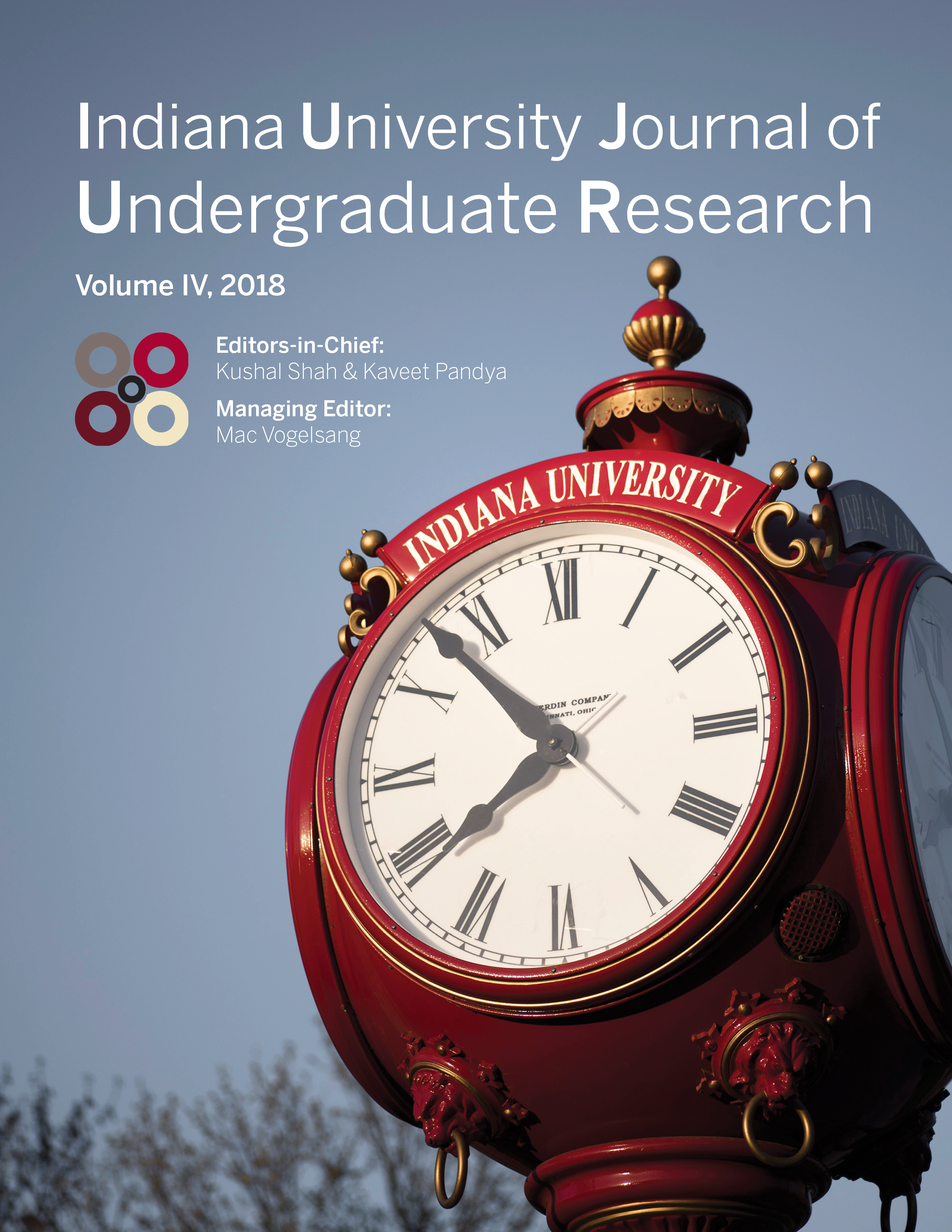Systematic Survey of the Role of IGF in the Link Between Diabetes and Cancer
Main Article Content
Abstract
Epidemiological studies have proposed a link between type II diabetes and cancer via the IGF/insulin signaling pathway, which includes insulin-like peptides (IGF1, IGF2, and insulin), insulin receptors (IR-A, IR-B, IGF1R, and hybrids), and insulin substrate proteins (IRS1-6). In this study, up- and down-regulation of various components in the IGF/insulin signaling pathway are compared to clinical outcomes for cancer patients; the components include diagnosis age, overall survival, tumor invasion and vascularization, and body mass index. It was found that the up-regulation of insulin growth Factor (IGF)/insulin components was associated with overall survival and tumor invasion and vascularization, while the down-regulation of equivalent components was not associated with clinical outcomes assessed in this study. Particularly, the up-regulation of DOK5, IGF2, and IRS2 in colorectal cancer and IGF1R in liver cancer is associated with significantly decreased overall survival. Functional aberrations in either of the two proteins in co-expression pairs were identified for each cancer and correlated with overall survival and diagnosis age. Specific biomarkers proposed in this study will be further analyzed to fine-tune consistent associations that can be translated to reliable prognostic standards for the roles of IGF/insulin signaling pathway modulations that promote cancer.
Downloads
Article Details
Authors who publish with this journal agree to the following terms:
- Ownership of the copyright shall remain with the Author, subject to IUJUR’s use and the rights granted by the Creative Commons license assigned by the Author. A Creative Commons Attribution-NonCommercial 4.0 International (CC BY-NC 4.0) license will be applied to the published work unless otherwise indicated in the Student Author Contract. The CC BY-NC 4.0 license (https://creativecommons.org/licenses/by-nc/4.0/) lets others remix, tweak, and build upon the published Work non-commercially, and although the new works must also acknowledge the original IUJUR publication and be noncommercial, they don’t have to license their derivative works on the same terms.Authors are able to enter into separate, additional contractual arrangements for the non-exclusive distribution of the journal's published version of the work (e.g., post it to an institutional repository or publish it in a book), with an acknowledgement of its initial publication in this journal.
- Authors are permitted and encouraged to post their work online (e.g., in institutional repositories or on their website) prior to and during the submission process, as it can lead to productive exchanges, as well as earlier and greater citation of published work (See The Effect of Open Access).
References
Arcidiacono, B., Iiritano, S., Nocera, A., Possidente, K., Nevolo, M. T., Ventura, V., . . . Brunetti, A. (2012a). Insulin resistance and cancer risk: an overview of the pathogenetic mechanisms. Experimental Diabetes Research, 2012.
Arcidiacono, B., Iiritano, S., Nocera, A., Possidente, K., Nevolo, M. T., Ventura, V., . . . Brunetti, A. (2012b). Insulin Resistance and Cancer Risk: An Overview of the Pathogenetic Mechanisms. Experimental Diabetes Research, 2012, 12. doi:10.1155/2012/789174
Baxter, R. C. (2014). IGF binding proteins in cancer: mechanistic and clinical insights. Nat Rev Cancer, 14(5), 329-341. doi:10.1038/nrc3720
Bowers, L. W., Rossi, E. L., O'Flanagan, C. H., deGraffenried, L. A., & Hursting, S. D. (2015). The Role of the Insulin/IGF System in Cancer: Lessons Learned from Clinical Trials and the Energy Balance-Cancer Link. Front Endocrinol (Lausanne), 6, 77. doi:10.3389/fendo.2015.00077
Cerami, E., Gao, J., Dogrusoz, U., Gross, B. E., Sumer, S. O., Aksoy, B. A., . . . Schultz, N. (2012). The cBio Cancer Genomics Portal: An Open Platform for Exploring Multidimensional Cancer Genomics Data. Cancer Discovery, 2(5), 401-404. doi:10.1158/2159-8290.cd-12-0095
Chen, L., Magliano, D. J., & Zimmet, P. Z. (2011). The worldwide epidemiology of type 2 diabetes mellitus—present and future perspectives. Nature Reviews Endocrinology, 8, 228. doi:10.1038/nrendo.2011.183
Cohen, D. H., & LeRoith, D. (2012). Obesity, type 2 diabetes, and cancer: the insulin and IGF connection. Endocrine-Related Cancer, 19(5), F27-F45. doi:10.1530/erc-11-0374
Djiogue, S., Nwabo Kamdje, A. H., Vecchio, L., Kipanyula, M. J., Farahna, M., Aldebasi, Y., & Seke Etet, P. F. (2013). Insulin resistance and cancer: the role of insulin and IGFs. Endocrine-Related Cancer, 20(1), R1-R17. doi:10.1530/erc-12-0324
Dunant, N. M., Wisniewski, D., Strife, A., Clarkson, B., & Resh, M. D. (2000). The phosphatidylinositol polyphosphate 5-phosphatase SHIP1 associates with the Dok1 phosphoprotein in Bcr-Abl transformed cells. Cellular Signalling, 12(5), 317-326. doi:https://doi.org/10.1016/S0898-6568(00)00073-5
Ferlay, J., Soerjomataram, I., Dikshit, R., Eser, S., Mathers, C., Rebelo, M., . . . Bray, F. (2015). Cancer incidence and mortality worldwide: sources, methods and major patterns in GLOBOCAN 2012. Int J Cancer, 136(5), E359-386. doi:10.1002/ijc.29210
Gao, J., Aksoy, B. A., Dogrusoz, U., Dresdner, G., Gross, B., Sumer, S. O., . . . Schultz, N. (2013). Integrative analysis of complex cancer genomics and clinical profiles using the cBioPortal. Sci Signal, 6(269), pl1. doi:10.1126/scisignal.2004088
Giovannucci, E., Harlan, D. M., Archer, M. C., Bergenstal, R. M., Gapstur, S. M., Habel, L. A., . . . Yee, D. (2010). Diabetes and Cancer: A Consensus Report. CA: A Cancer Journal for Clinicians, 60(4), 207-221. doi:10.3322/caac.20078
Orgel, E., & Mittelman, S. D. (2013). The Links Between Insulin Resistance, Diabetes, and Cancer. Current Diabetes Reports, 13(2), 213-222. doi:10.1007/s11892-012-0356-6
Rebhan, M., Chalifa-Caspi, V., Prilusky, J., & Lancet, D. (1998). GeneCards: a novel functional genomics compendium with automated data mining and query reformulation support. Bioinformatics, 14(8), 656-664. doi:10.1093/bioinformatics/14.8.656
Vigneri, P., Frasca, F., Sciacca, L., Pandini, G., & Vigneri, R. (2009). Diabetes and cancer. Endocrine-Related Cancer, 16(4), 1103-1123. doi:10.1677/erc-09-0087

